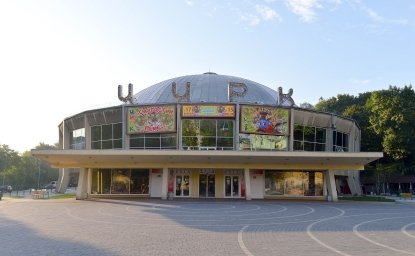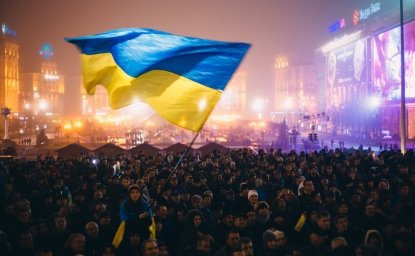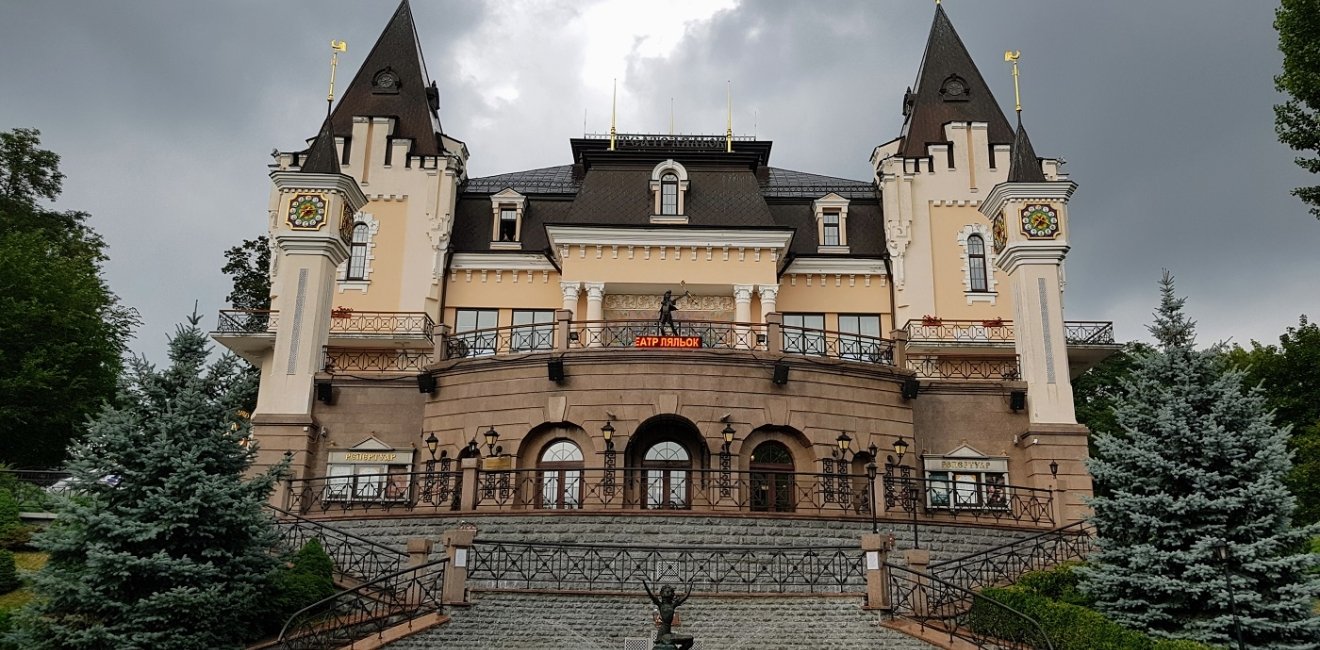
A blog of the Kennan Institute
The close of Kyiv’s Academic Puppet Theater’s 97th season in June was a moment of frustration and pride. Russian bombardment of the city, leading to extensive blackouts, had frustrated the theater’s efforts to bring one more premiere performance to audiences before summer. Theater management struggled with finding alternative power sources that would allow operations to continue without access to the city grid even while new productions moved forward throughout the season. But the company took great pride in what it had been able to accomplish over the difficult autumn-to-spring term. Despite wartime hardships, it staged 273 performances, including four premiers, before more than 50,000 spectators of all ages.
Actors Vadym Dotsenko, Yury Farafonov, and Oleksandr Voron appeared in more than 177 performances each, carrying the company along throughout this difficult period. Newcomers joined these veterans to guarantee artistic and commercial success. As a result of these efforts, the company was among the most profitable among all Ukrainian theaters.
Beyond what was happening on stage, the theater held master classes with other cultural centers, joined with the State Toy Museum to mount a large exhibit of dolls, and hosted colleagues from Kherson and Mykolaiv. Charitable activities included visits to theaters and children’s libraries, as well as special performances for military children, displaced persons, and adults and children with disabilities. In June, the company performed The Cat and the Rooster in sign language, with plans for creating more works for the hearing impaired.
Among these accomplishments—and despite constant interruption from Russian rockets—the company staged four premiers. Mykola Danko’s stylish, fresh take on the Hans Christian Anderson classic Thumbelina joined longtime favorites such as The Golden Chicken and the Ukrainian tale Ivasik-Telesic to delight younger viewers. A new, large-scale musical production of The Wizard of Oz drew in older audiences.
In addition, a New Year’s holiday medley, Bloggers in the Theater, entered the company’s regular repertoire. The play highlights the puppet world as a magical place as three bloggers sneak into the theater at night to shoot stories for their Instagram and TikTok accounts. Their steps and missteps cast light on the vanishing line between fantasy and reality that has stood at the center of fairy tales for centuries and is the fulcrum of social media today.
A late-season extravaganza, Stolen Happiness, based on Ivan Franko’s popular play, explores difficult choices between freedom and security. Star performer Dmytro Linartovych took time from his military service to play gendarme Mykhailo Hurman in this story of unhappy love. Director Tetyana Avramenko presents the well-known story as a contemporary tragedy of characters robbed of their futures, where one set of choices will betray others. Only by accepting the irreversibility of life’s circumstances can we face the future with courage. For Avramenko, the story reveals pain that is felt in the protagonists’ souls, and in the souls of the show’s wartime audiences.
Looking back at its 97th season, company members at Kyiv’s Academic Puppet Theater find plenty of reasons to celebrate. Rather than focusing on blackouts, shortened performance times, restricted audience size, and physical damage from nearby attacks, the company chooses to look to its future, approaching its 98th season with a combination of optimism and defiance. In doing so, they personify characteristics that have marked Kyiv’s—and Ukraine’s—cultural life from the very first days of the Russian full-scale invasion.
The opinions expressed in this article are those solely of the author and do not reflect the views of the Kennan Institute.
Author

Former Wilson Center Vice President for Programs (2014-2017); Director of the Comparative Urban Studies Program/Urban Sustainability Laboratory (1992-2017); Director of the Kennan Institute for Advanced Russian Studies (1989-2012) and Director of the Program on Global Sustainability and Resilience (2012-2014)

Kennan Institute
The Kennan Institute is the premier US center for advanced research on Eurasia and the oldest and largest regional program at the Woodrow Wilson International Center for Scholars. The Kennan Institute is committed to improving American understanding of Russia, Ukraine, Central Asia, the South Caucasus, and the surrounding region though research and exchange. Read more

Explore More in Focus Ukraine
Browse Focus Ukraine
A Circus Brings Joy to Lviv’s Children

How Divided Are United Ukrainians?

Building a Thriving Ukrainian Design Community Now

